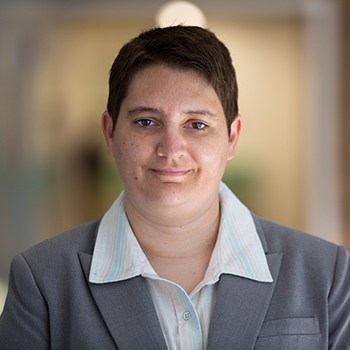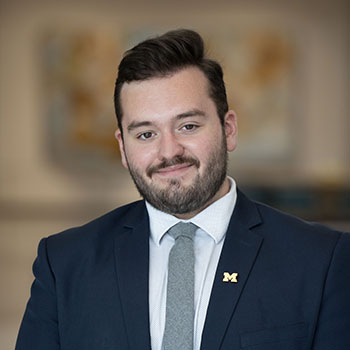
NSF Grant Will Support Research to Reduce Wildfire Threats
Associate Prof. Ann Jeffers leads a team on modeling firebrand transport

Associate Prof. Ann Jeffers leads a team on modeling firebrand transport

Wildfires pose a significant danger to people living at the wildland-urban interface (WUI) and have caused billions of dollars in damage to property. U-M CEE Associate Prof. Ann Jeffers is the lead P.I. on a project that just received a grant for almost $600,000 from the National Science Foundation (NSF) to develop a computational model that will allow researchers to predict structural ignitions under wildfire exposure. The project’s title is “BRITE Relaunch: A Physics-Based Simulation Model for Exploring Community Resilience to Wildfires.”
“What’s unique about this model is that it focuses on ignitions due to firebrand showers,” Prof. Jeffers said. Firebrands are the embers that are lifted by fire and carried by the wind, often raining down on structures and setting them ablaze. While a single firebrand can ignite a building, a greater danger occurs when firebrands accumulate in the cracks and crevices around structures. Right now, the only way to predict structural ignition under firebrand attack is to perform expensive experiments, which are limited by the ability to scale the results to full-sized structures.
The new research that Prof. Jeffers will lead proposes the formulation and validation of a physics-based simulation model for firebrand transport around structures. The team will use computational fluid dynamics to simulate the flow of air around a structure due to wind, and firebrands coming in contact with the structure will be modeled using the Discrete Element Method.
Associate Prof. Seymour Spence and Assistant Prof. Estéfan Garcia are collaborating on the project with Prof. Jeffers. “Seymour is focusing on the wind-driven firebrand transport model,” said Prof. Jeffers. “Estéfan is looking at modeling these embers as they impinge on structures. Embers are very brittle and tend to break apart.”
Once validated, the simulation model will be used to study how policy decisions affect community resiliency to wildfires.
“We know that hardening structures through cladding, roofing, and placing screens over vents to prevent embers from entering helps to mitigate firebrands,” Prof. Jeffers said. She added that maintaining vegetation around structures is important. “A lot of the wildfire hazard is related to the maintenance of property. Keeping vegetation away from homes and removing leaves and other debris from the property are important for reducing the threat.” Prof. Jeffers noted that her research can also be applied to communities that are being rebuilt after extensive damage from wildfire, like in Paradise, California. “We can ask ourselves, ‘How can we rebuild in a way that will keep structures safe?’ ”
Prof. Jeffers noted that the NSF awarded this three-year grant under its BRITE Program, which is for mid-career faculty. Specifically, this project is funded under the relaunch track, which supports researchers who have a gap in their careers. “I’m in the process of relaunching my research program,” Prof Jeffers said. “I had several years of success, but then I dealt with mental illness and then focused on my family, with fostering and adopting two children. These events took my attention away from research. What I am trying to do is to get back into it. Part of the reason why I chose wildfires is because they are a huge problem in the U.S. and elsewhere especially due to climate change. I want to take my knowledge of fires and structures and apply that to the wildfire problem to address a fairly urgent need within our communities. I’m pivoting from building fires to wildfires because this is an important topic that needs to be studied. I’m totally excited about this project and am looking forward to jumping right into the work.”

Marketing Communications Specialist
Department of Civil and Environmental Engineering